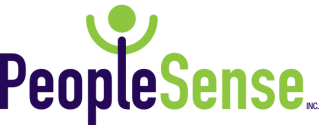Learn Why You Need a Social Media Policy and Find Out How to Create One
The recent Cambridge Analytica scandal at Facebook, reported misuse of built-in algorithms on YouTube, and repeated issues with trolling and cyber-abuse on Twitter have left social media platforms and their users reeling – yet the overall popularity of social media still continues to grow and evolve.
However, all these scandals can leave today’s businesses in a difficult situation regarding social media usage, and now, more than ever, it’s critical that companies clearly establish social media policies and usage guidelines that will protect their brand and their employees.
The responsibility for this task lies with the HR department.
In today’s article, we’ll be talking about the benefits and drawbacks of social media usage for your company and HR department, and we’ll get you the resources and information you need to develop a rock-solid social media policy that protects and promotes your organization.
Social Safety: Assessing the Benefits and Risks
There’s never been anything quite like social media. This groundbreaking technology has stirred revolution, increased consumer power, provided breaking news opportunities worldwide, and also spread damaging gossip and libel faster than ever possible before.
In short: social media is a global game changer that can have good and bad effects.
It’s a game changer for businesses too. This technology offers unmatchable customer engagement opportunities, affordable advertising, and incredible recruitment possibilities, but to maximize your use, you must ensure that your company remains within the law and complies with fair labor practices as per the NLRA (National Labor Relations Act).
One of the first steps to ensuring compliance is to know all the risks on all of the major social media platforms, including Facebook, Twitter, LinkedIn, and YouTube. Learn the risks for each platform here.
HR-Specific Risks for Social Media
Once you know the potential danger of each platform for general business use, you’ll need to know how social media can adversely affect the hiring process and lead to potential lawsuits.
Investigating job candidates on Facebook, Twitter, and other platforms can lead to unintentional HR knowledge of forbidden information, such as religious or political leanings. In addition, social media can connect your employees in potentially awkward or inappropriate ways because it blurs the lines between personal and professional conduct and comportment.
To protect your company and your employees, it’s important to understand the legal implications of using social media in the workplace. Assess your risk for hiring troubles and workplace social media dangers here.
How to Use Social Media at Your Company
As a Human Resources leader, it’s critical that you be the guiding light for correct and appropriate social media usage companywide – but that means you’ll have to take the time to educate yourself on the benefits and risks of this technology.
Ready for tips, pointers, and resources that can help you establish effective social media policies?
Not sure about the two ways that every company should be using social media?
PeopleSense is here to help with a complimentary guide that builds your expertise on how social media impacts the HR department.
Download the white paper, “Social Media and HR – Friends or Foes?” to get all the information you need to safely succeed with social media in your HR department.



Recent Comments